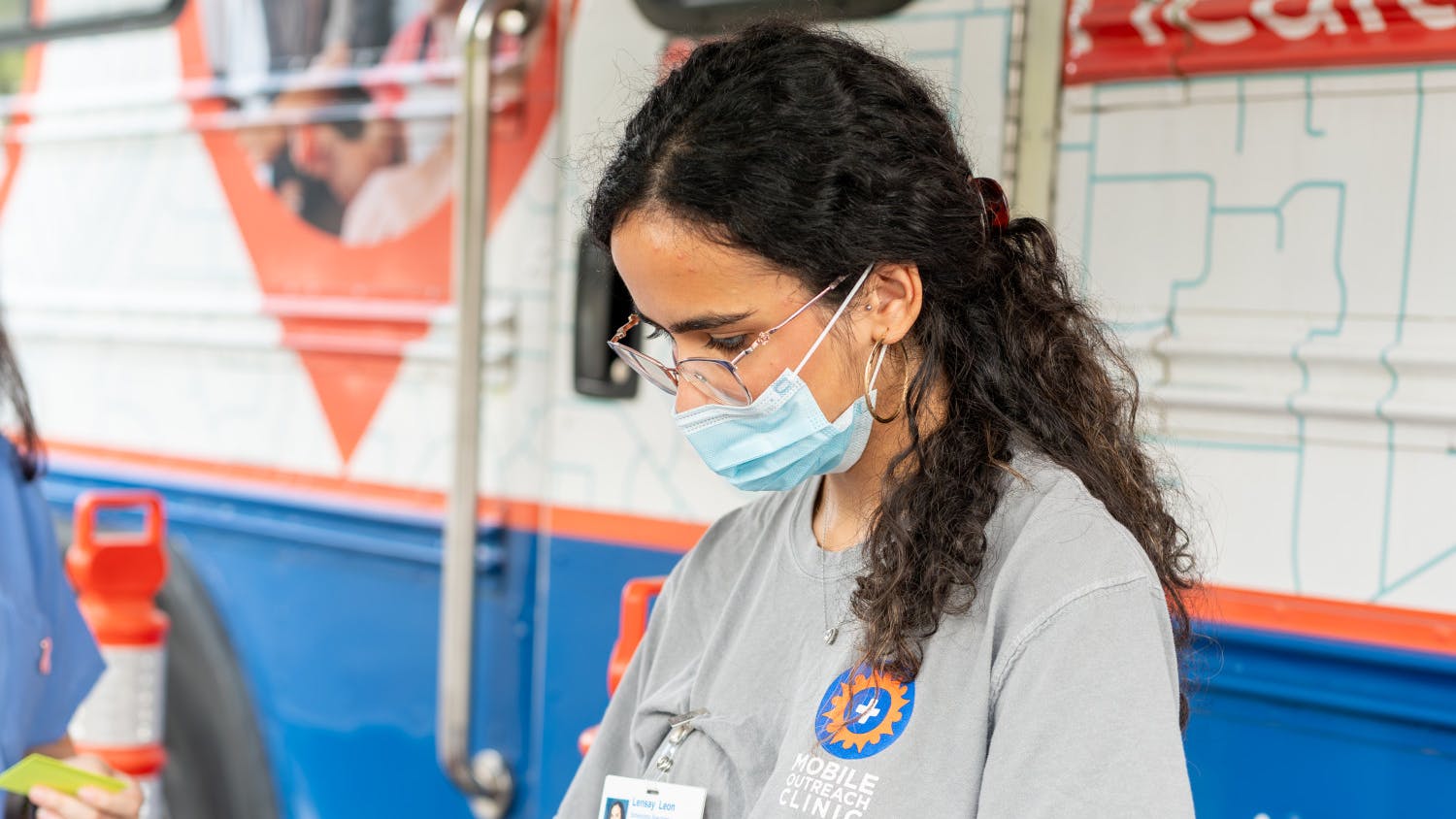In the midst of a sluggish economy, while already being hit with tuition and housing increases, some students are also having to pay more for school-sponsored health insurance.
This fall, UF’s student health insurance switched from Aetna to UnitedHealthcare, and costs increased by almost $300 with no major changes to the plan.
Both companies are national leaders in student insurance, according to The Wall Street Journal.
Dr. Phillip Barkley, director of the Student Health Care Center, said Aetna was asking for about a 40 percent price increase to provide the same benefits as last year, which prompted the university to consider a new company.
But even with the switch to United, insurance rates still increased for students.
Kathy Lindsey, insurance coordinator at the Student Health Care Center, said that when considering new student plans, cost is a high priority.
A cheap plan with less coverage may be chosen over an expensive plan with more coverage because the insurance office knows students are more willing to go without coverage than pay more money.
Robert Jerry, dean of the Levin College of Law, said he is not surprised that student plans are increasingly expensive. The student population is healthier than most demographics, so student insurance is priced to make more profit than other insurance products, he said.
Student health insurance plans rank among the worst in the country, according to The Wall Street Journal. Each year, costs go up and coverage goes down.
Jordan Peters, a UF journalism junior, has been insured by UF’s student health insurance since he was a freshman. He said missing that few hundred dollars out of his total living expenses for the year makes a huge difference.
“This year we kind of signed up out of habit more than anything,” Peters said. Because of rising costs, he might look for a new insurance plan next year.
There are 6,882 students registered with the student health insurance, according to Lindsey.
While the costs are constantly climbing, insurance companies are making up to five times more profit on student plans than they make on other types of plans, according to a study from the Massachusetts Division of Health Care Finance and Policy from 2009.
Lindsey said this statistic could be explained by what insurance companies call a risk pool. A risk pool represents the number of people who may not sign up for insurance. If a university does not require insurance, they have a large risk pool. If university insurance policies are required, the risk pool is almost zero.
The smaller the risk pool, the more money an insurance company makes, because everybody is paying for insurance whether they need it or not. But UF doesn’t require students to have health insurance, resulting in a larger risk pool and higher cost.
The most popular basic plan for students costs $1,569 per year, compared to $1,391 last year.
The insurance plan does not include routine dental treatment, preventative medicine, routine eye care or other items on the exclusion list in the 2010 insurance plan booklet available at SHCC.
Jerry believes the new health care legislation passed by Congress may also have an effect on student health care plans. The new law states that full-time students can be covered by their parents’ insurance up until age 26.
University insurance plans may become more expensive because there will be less need for them, he said.
There are ways to bring insurance costs down for students, but it’s not in the hands of the university, Jerry said. If the state and federal governments team up to regulate insurance and provide everyone with some degree of health care, costs would go down.
“We ought to have a system where everybody has some kind of access to basic health care,” he said.
For the time being, students can use tools provided by the health care center, such as pamphlets and online links, to educate themselves about insurance plans and ensure that they get a plan that best fits their needs.
“Insurance is just plain old not easy to understand,” Lindsey said.
Employees at the insurance office are available to answer students’ questions, she said.
“I believe each person has a unique situation,” Lindsey said. “I definitely think [the student] plan is a worthy option, even more so if the alternative is going uninsured.”





